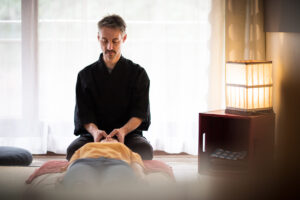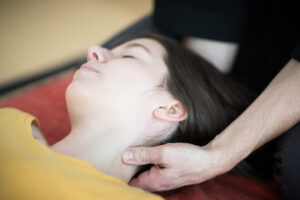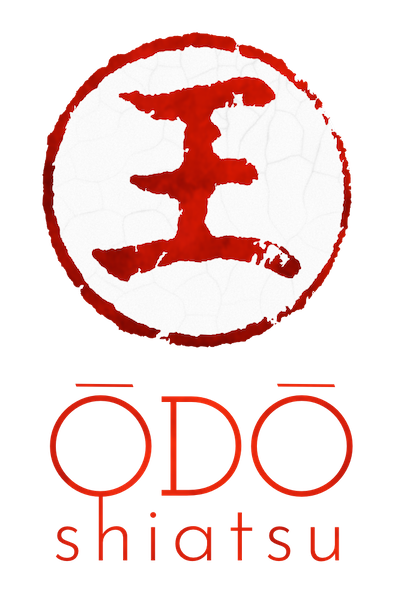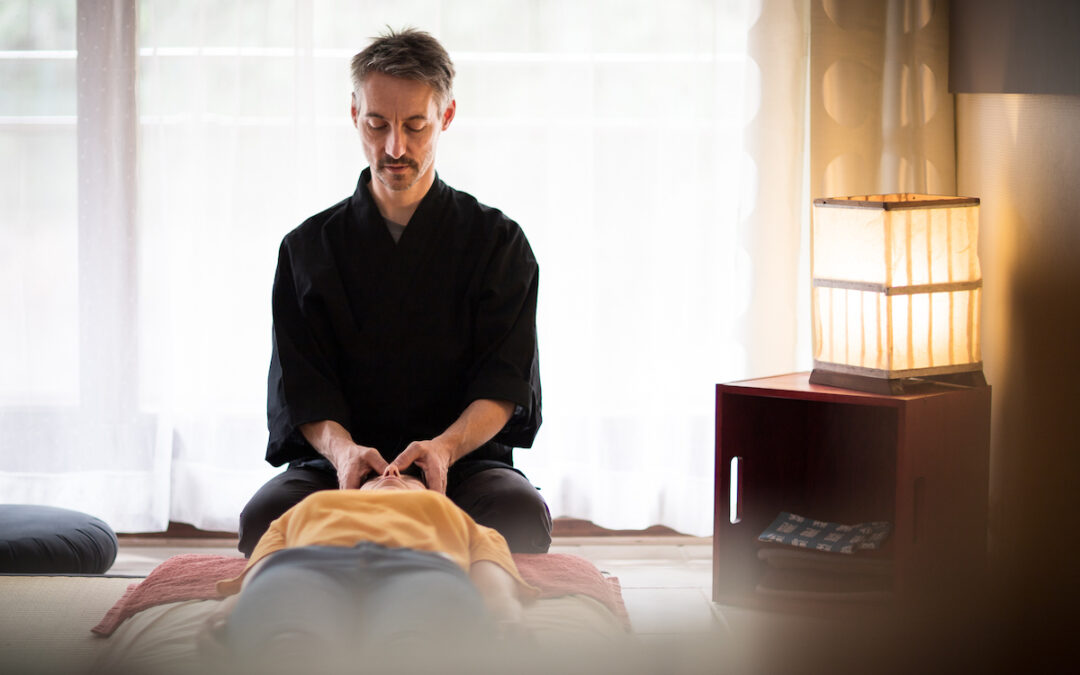What is shiatsu?
If you do an Internet search, the main definition of shiatsu is the literal translation: “finger pressure”.
More explicitly, shiatsu is a Japanese manual practice that combines massage techniques and pressure on acupuncture points. It is one of a number of manual therapies that fall somewhere between wellness practices and osteopathic and physiotherapeutic practices.
Each practitioner determines, according to his or her training and the school in which he or she studied, whether to focus more on “well-being” or “therapy”, without getting into pointless debates about schools or orders: deep relaxation is already a therapeutic effect in itself.

What’s it like?
What can sometimes be reassuring when receiving shiatsu is that you remain clothed. Shiatsu is generally practised on clothing. This is done on a futon (Japanese mattress), placed on the floor. A wide variety of techniques are available.
There is, of course, pressure on points or meridians, as well as mobilizations such as undulations, light percussion of the hands on certain zones, etc. Often, the body as a whole is treated. Often, the whole body is treated.
Who’s it for?
There are no real restrictions. I’ve been able to practice on babies and the very elderly.
The best thing is to get in touch with a practitioner.
What for?
The field is vast. We can already say that shiatsu does not replace our medical methods. On the other hand, it is an excellent complement and can be a link between different fields: a psychological follow-up could be based on the body work proposed in shiatsu, a physiotherapist or osteopath could also find an interest in certain pathologies since shiatsu will “work” the body as a whole, a doctor could also recommend shiatsu sessions to help with problems of stress, insomnia or anxiety. If you’re not familiar with shiatsu, why not have one, just for the experience, to feel what it feels like (I’ve written a short story on this subject entitled “Instant shiatsu”, published by Editions du Renard Blanc, which deals with these notions of feeling).

Otherwise, shiatsu is highly effective in cases of stress and its attendant symptoms. Stressful situations eat away at you from the inside out, and shiatsu will relax and enable you to really let go of your body and mind.symptoms include stomach acidity, insomnia, lumbago, aggressive reactions and anxiety.it’s essential not to pigeonhole and judge this practice through our usual medical filters: it’s a so-called holistic practice (which takes the body as a whole) and doesn’t focus on the symptom (reserved for our medical practices).


Recent Comments